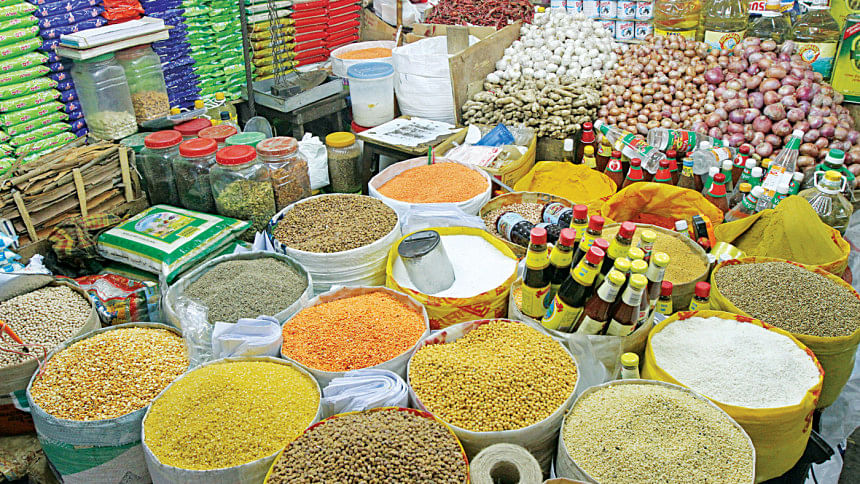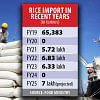Economy in for a double whammy

With inflation edging towards double digits and quarterly GDP growth nearly halving year on year, pressure on consumers is mounting and experts are pointing at even darker clouds.
Economists said escalating tension in the Middle East could affect Bangladesh's economic outlook and called upon the government to carefully manage the economy to ease the pressure on people.
Bangladesh's economic growth stood at 3.78 percent in the second quarter of fiscal 2023-24, the slowest pace in three quarters, according to the latest data from the Bangladesh Bureau of Statistics (BBS).
The sharp decline in growth in manufacturing and service sectors is to blame.
In the second quarter of fiscal 2022-23, the GDP grew by 7.08 percent and in 2021-22, by 9.3 percent.
In March, inflation, a measure of the increase in the prices of a basket of goods and services over a period, rose 9.81 percent after easing in the previous month. In February, inflation was 9.67 percent. High prices are consistently eroding consumers' buying capacity.
Zahid Hussain, a former lead economist at the World Bank's Dhaka office, said in Bangladesh's context, inflation is increasing while economic growth is declining.
"As a result, the people's income opportunity and purchasing capacity are declining," he added.
BBS, the national statistical agency, said industrial production expanded 3.24 percent in the October-December period of 2023 from 10 percent in the same period a year ago.
In the same quarter of fiscal 2021-22, the industrial sector grew by 14.50 percent. Even in the first quarter of the current fiscal year, the sector grew by 9.63 percent.
Growth in manufacturing saw a 0.45 percent decline in the second quarter of the current fiscal year.
On the other hand, the services sector, which accounts for half of the GDP, increased 3.06 percent in the second quarter of fiscal 2023-24 against a growth of 6.62 percent in the same period of the last fiscal year.
However, farm production grew 4.65 percent in the October-December period from 4.22 percent a year ago.
Economist Zahid said the decline in manufacturing sector growth could be because imports are becoming more difficult due to the central bank's restrictions. It is difficult to keep up the pace of production if machinery cannot be imported, he said.
The country's manufacturing sector is both export-oriented and domestic-oriented, he said, adding that manufacturing aimed at the domestic market saw a decline because of a lack of demand caused by the reduction of people's purchasing power.
Zahid identified three factors behind the overall decline in economic growth: macroeconomic mismanagement, import restrictions, and a distressed financial sector.
He said macroeconomic mismanagement became evident as inflation could not be controlled, which resulted in people's reduced purchasing capacity.
Also, imports had to be restricted because of the crisis in the foreign currency reserves, he said, adding that such a crisis could not be overcome as the foreign exchange market management was not proper.
Besides, good borrowers do not get loans from the financial institutions. Instead, bad borrowers are entertained as per their requirements, he further said.
Prof Mustafizur Rahman, a distinguished fellow at the Centre for Policy Dialogue, echoed Zahid and said high inflation, low investment, and import restrictions have adversely affected the country's economy, especially the manufacturing and service sectors.
"Domestic factors are more responsible than outside factors behind the slow economic growth," he said.
He also said the country's exports and inward remittances were turning around slightly, however, fresh escalation in tension in the Middle East might add to Bangladesh's economic stress.
Already fuel prices in the international market have started to increase. If fuel prices increase, then shipping costs and other commodity prices will also increase, he added.
How much Bangladesh's economy will be affected depends on how long the tension persists, he said.
In this context, the Bangladesh government has to beef up its measures to control inflation and encourage investment, he added.

 For all latest news, follow The Daily Star's Google News channel.
For all latest news, follow The Daily Star's Google News channel. 









Comments